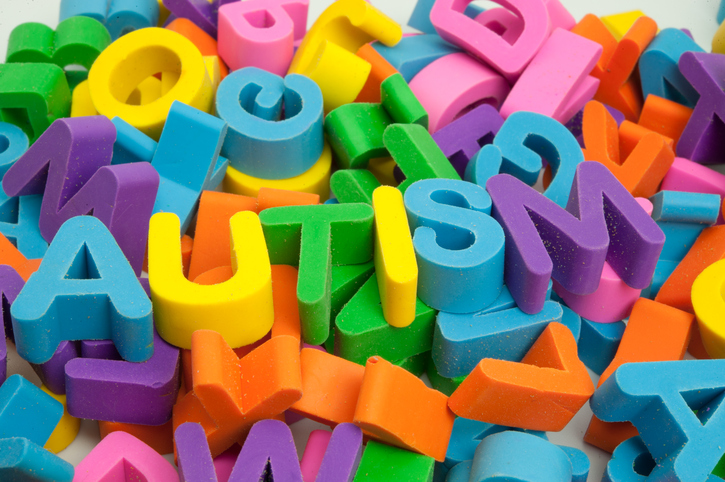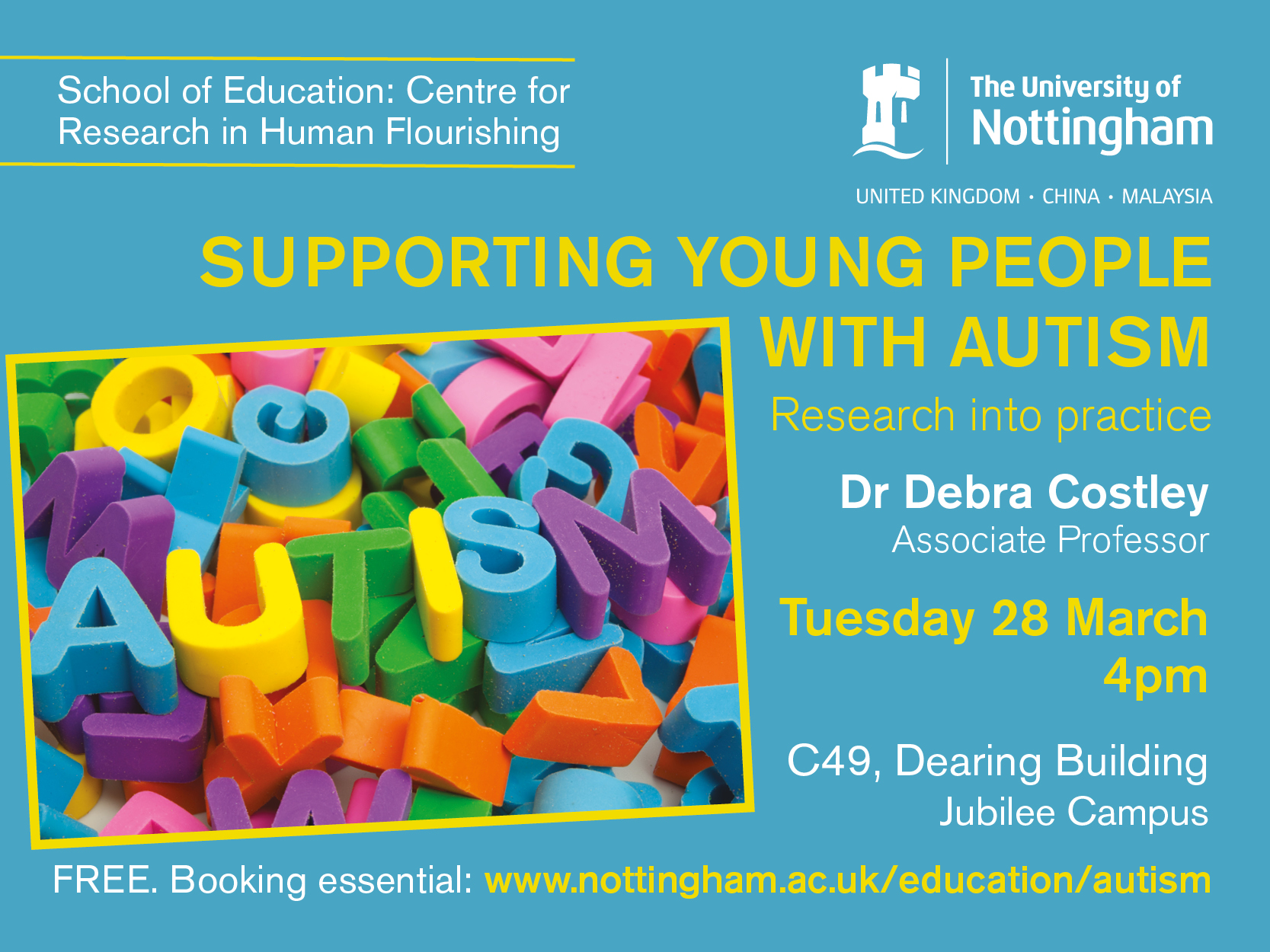
March 17, 2017, by Rob Ounsworth
Education and autism: research into practice
To mark World Autism Awareness Week, the School of Education is hosting a free seminar to highlight findings from cutting edge research in the field of autism.
Speakers include Dr Debra Costley, an Associate Professor in the School of Education and an international expert in autism education. Dr Costley, the former National Director for Research and Development at Autism Spectrum Australia, writes here about her research.
We all know someone on the autism spectrum. The prevalence in the UK is currently 1 in 100 people: in the USA the latest figures are 1 in 68. Awareness of the strengths and challenges of this very diverse group needs to be raised to encourage community support.
At Supporting young people with autism: research into practice (Tuesday 28 March,4pm-6.30pm C49, Dearing Building, Jubilee Campus) I will present the findings from a survey of adolescents on the autism spectrum that gives us an insight – in their own words – into their experiences, needs and aspirations.
Some of the most important findings are about young people’s experiences of education. Two thirds of young people on the autism spectrum struggle to manage in mainstream schools. They find it difficult to concentrate in class and to follow instructions from teachers, such as multiple instructions in one sentence. For example, ‘open your book at page seven, read the section on climate change and make some notes of the key points, but before you start make sure you hand me your homework from last week’.
How simple changes in teaching style can help
Many young people on the autism spectrum will still be concentrating on ‘getting their book out and opening it at page seven’ and will have missed the following three instructions. Research shows that most children will benefit from simple changes in teaching style: giving one instruction at a time, making sure everyone has understood one part before moving on to the next, and putting a list of instructions on the board for the whole class.
Two thirds of young people on the autism spectrum say they need more help to complete classwork and homework, whereas a national survey in Australia of teenagers in the general population found only 6% of people were dissatisfied with their studies. This is a huge disparity and one that teachers in the UK need to be aware of and can learn from.
Worryingly, only 3% of parents who completed the survey felt that their child’s teachers were well informed about autism, indicating a need for increased training and continuing professional development for teachers and support staff in schools.
Young people told us about being worried and stressed and about feeling lonely and needing help to make friends. Friendship was highly valued by the young people in the general population study and 88% said they would turn to friends first for help. Given their reported difficulties with making friends and social skills, it is not surprising that 58% of young people on the autism spectrum reported bullying compared to 15% of young people in the general population.
Peer education makes a difference
Unstructured time is difficult for some young people on the spectrum and lunchtime clubs (Minecraft and Lego Robotics are very popular) can help them. Peer education is also important and has been shown to make a difference to the behaviour of young people towards classmates on the spectrum.
Given these figures and the fact that these young people are struggling to cope in school, it is not unexpected that 66% of young people on the autism spectrum said they need more help to cope with and manage stress.
The difference in reported rates of bullying is significant and an area where schools need to be working together to look at their inclusion policies and practices. Whole school development and auditing of practice is a good place to start and there are models that can support this work.
Supporting young people with autism: research into practice
Find out more and book
No comments yet, fill out a comment to be the first


Leave a Reply